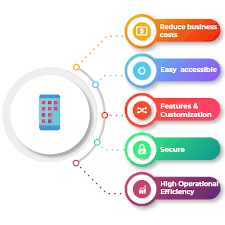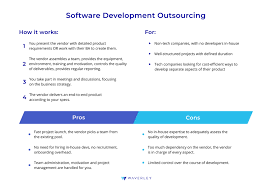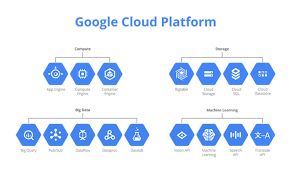Exploring the Role of an Amazon Software Engineer in Cutting-Edge Technology Projects
The Role of a Software Engineer at Amazon
Amazon, one of the world’s largest and most innovative tech companies, offers exciting opportunities for software engineers to contribute to cutting-edge projects and shape the future of e-commerce, cloud computing, and artificial intelligence.
Responsibilities
As a software engineer at Amazon, you will be responsible for designing, developing, and maintaining scalable software solutions that power various Amazon products and services. You will collaborate with cross-functional teams to deliver high-quality code that meets customer needs.
Skills Required
To excel in this role, candidates should possess strong programming skills in languages such as Java, C++, or Python. Familiarity with web technologies, cloud computing platforms like AWS, and database management systems is also essential. Problem-solving abilities and a passion for innovation are key traits of successful Amazon software engineers.
Culture and Environment
Amazon fosters a culture of continuous learning and growth, providing employees with opportunities to expand their skills through training programs and mentorship. The work environment is fast-paced and dynamic, encouraging collaboration and creativity among team members.
Career Development
Software engineers at Amazon have the chance to work on diverse projects across different business units, gaining valuable experience in various domains of technology. The company offers career advancement opportunities based on performance and merit, allowing individuals to progress in their careers within the organization.
Conclusion
Becoming a software engineer at Amazon opens doors to a world of innovation and impact. With a focus on customer obsession and technological excellence, Amazon provides a stimulating environment for software engineers to thrive and make significant contributions to the tech industry.
8 Frequently Asked Questions About Being a Software Engineer at Amazon
- What are the responsibilities of a software engineer at Amazon?
- What programming languages are essential for a software engineer role at Amazon?
- How does Amazon support the career development of its software engineers?
- What is the work culture like for software engineers at Amazon?
- Are there training programs available for software engineers at Amazon?
- How does collaboration play a role in the work of a software engineer at Amazon?
- What opportunities are there for advancement as a software engineer at Amazon?
- Can you describe the typical day-to-day tasks of a software engineer working at Amazon?
What are the responsibilities of a software engineer at Amazon?
The responsibilities of a software engineer at Amazon encompass designing, developing, and maintaining scalable software solutions that power a wide range of Amazon products and services. Collaborating closely with cross-functional teams, software engineers are tasked with delivering high-quality code that meets the evolving needs of customers. This role requires a keen focus on innovation, problem-solving skills, and a deep understanding of programming languages such as Java, C++, or Python. Software engineers at Amazon play a crucial role in shaping the technological landscape of e-commerce, cloud computing, and artificial intelligence within the company.
What programming languages are essential for a software engineer role at Amazon?
In the context of a software engineer role at Amazon, proficiency in programming languages such as Java, C++, and Python is essential. These languages are commonly used in developing scalable and efficient software solutions that power Amazon’s diverse range of products and services. Familiarity with web technologies, cloud computing platforms like AWS, and database management systems complements the core programming skills required for success in this role. Demonstrating expertise in these languages not only enables software engineers to tackle complex challenges but also aligns with Amazon’s commitment to innovation and customer-centric solutions.
How does Amazon support the career development of its software engineers?
Amazon is committed to supporting the career development of its software engineers through various initiatives and programs. The company offers opportunities for continuous learning and growth, providing access to training programs, mentorship, and resources to help engineers enhance their skills and stay up-to-date with the latest technologies. Amazon encourages a culture of innovation and collaboration, allowing software engineers to work on diverse projects across different business units and gain valuable experience in various domains of technology. Career advancement opportunities are available based on performance and merit, enabling engineers to progress in their careers within the organization and make meaningful contributions to the tech industry.
What is the work culture like for software engineers at Amazon?
The work culture for software engineers at Amazon is known for its intensity and focus on innovation. Amazon values a results-driven approach, where employees are encouraged to think big and deliver high-quality solutions to complex problems. Collaboration and teamwork are key aspects of the culture, with engineers often working in cross-functional teams to achieve common goals. The fast-paced environment at Amazon challenges software engineers to constantly learn and adapt, pushing boundaries and driving continuous improvement. While the culture may be demanding, it also provides opportunities for growth, recognition, and the chance to work on cutting-edge projects that have a significant impact on the tech industry.
Are there training programs available for software engineers at Amazon?
One frequently asked question regarding software engineers at Amazon is whether there are training programs available. Amazon values continuous learning and professional development, and as such, offers a variety of training programs for software engineers to enhance their skills and stay up-to-date with the latest technologies. These programs cover a wide range of topics, including programming languages, cloud computing platforms, and best practices in software development. By participating in these training initiatives, software engineers at Amazon can further their expertise and contribute more effectively to the company’s innovative projects.
How does collaboration play a role in the work of a software engineer at Amazon?
Collaboration plays a crucial role in the work of a software engineer at Amazon. Software engineers at Amazon often work in cross-functional teams, where they collaborate with product managers, designers, and other engineers to develop innovative solutions that meet customer needs. Through effective collaboration, engineers can leverage diverse perspectives and expertise to tackle complex problems, drive creativity, and ensure the delivery of high-quality software products. Communication and teamwork are essential components of successful collaboration at Amazon, fostering a culture of shared responsibility and continuous improvement in the pursuit of excellence.
What opportunities are there for advancement as a software engineer at Amazon?
At Amazon, software engineers have abundant opportunities for advancement and career growth. The company values talent and dedication, offering a structured career development path that allows engineers to progress within the organization based on their performance and achievements. Software engineers can explore vertical and lateral movements, taking on new challenges and responsibilities in different teams or projects. Amazon also provides avenues for skill enhancement through training programs, mentorship, and exposure to cutting-edge technologies. With a culture of innovation and a commitment to excellence, software engineers at Amazon have the chance to continuously learn, evolve, and advance their careers in a dynamic and rewarding environment.
Can you describe the typical day-to-day tasks of a software engineer working at Amazon?
In a typical day at Amazon, software engineers engage in a variety of tasks to drive innovation and deliver customer-centric solutions. They collaborate with cross-functional teams to design and develop scalable software solutions, participate in code reviews to ensure quality and maintainability, and troubleshoot technical issues to ensure smooth operation of systems. Additionally, they may attend meetings to discuss project progress, propose new ideas for improvement, and contribute to the continuous learning culture by staying updated on the latest technologies and best practices in the industry. Overall, a software engineer’s day-to-day responsibilities at Amazon involve a blend of coding, problem-solving, collaboration, and continuous learning to enhance the customer experience and drive technological advancements within the company.












